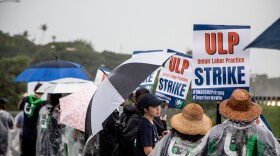A report submitted to the United Nations claims that Hawaiʻi’s midwifery licensure law violates international human rights standards.
The report was written by the global advocacy group Center for Reproductive Rights and 14 other organizations.
It documents the United States’ failure to meet its obligations under the International Covenant on Civil and Political Rights. It highlights Hawaiʻi’s law as an example of persecution of traditional midwives, leaving Indigenous communities underserved.
Licensure exemptions under Hawaiʻi Act 32 of 2019 expired in July. That affected access to midwifery care, particularly to Native Hawaiian patients.
"While Act 32 contains some language referencing possible exceptions for Native Hawaiian cultural practices, the extent to which these exceptions include midwifery, rather than other healing practices that can be incorporated into midwifery, is unclear," the report stated.
The lapsing exemption eliminated a portion of the state's midwifery law that allowed birth attendants to guide expecting families in lieu of a licensed midwife.
Midwives and birth attendants differ in that a midwife is defined as holding a recognized license through the state. A birth attendant is typically unlicensed, but in many cases, will be somebody who has learned birthing practices through hands-on, generational training.
Many traditional Maui midwives now face legal uncertainty while they provide maternity care to residents and fire survivors.
The Center for Reproductive Rights and other health and justice organizations that collaborated on the report will present additional information to the United Nations Human Rights Committee in Geneva, Switzerland next month.
This last legislative session, House Bill 955 sought to extend the birth attendant exemption by two years to allow for more time to address the issues, and also offered the Portfolio Evaluation Process, or PEP, as a secondary means for licensing.
That bill faced three referrals in the House of Representatives. After it passed both subject matter committees, it went unheard by the Finance Committee, effectively killing the non-fiscal measure.






